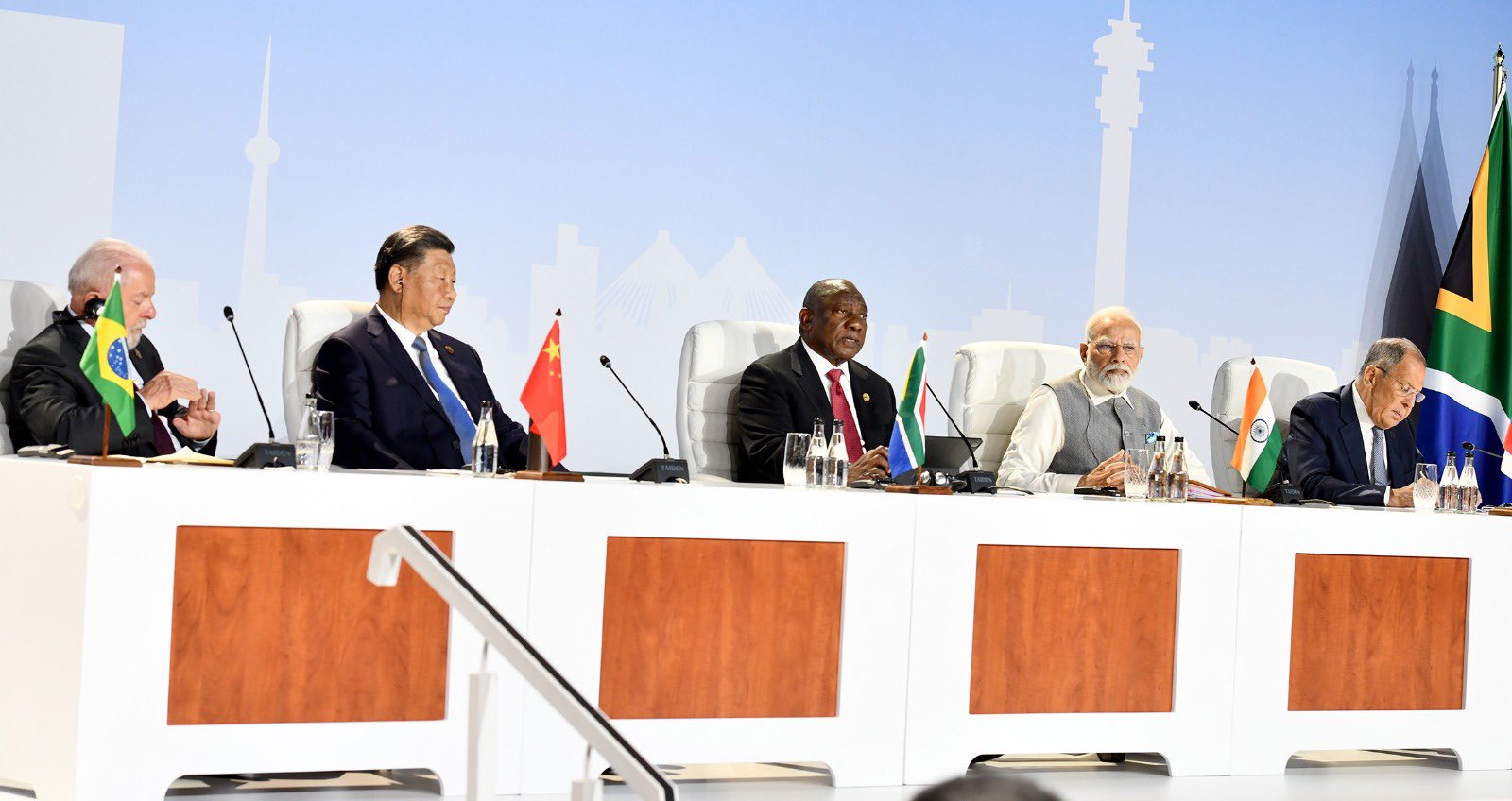BRICS (Brazil, Russia, India, China, South Africa) leaders on Thursday, August 24, announced a decision to expand the bloc’s membership with the admission of seven countries among them Egypt and Ethiopia.
South Africa’s President Cyril Ramaphosa, who was doubling up as the bloc’s chairperson announced that the leaders had adopted the Johannesburg (two) Declaration which spelled out expansion guidelines of admission to BRICS.
Egypt and Ethiopia will join Saudi Arabia, the United Arab Emirates (UAE), Iran, and Argentina as BRICS’ new entrants when the resolution takes effect in January 2024.
The announcement was a culmination of deliberations held during the three-day BRICS summit in Johannesburg bringing together leaders from the five member states.
The newly adopted guidelines, according to Ramaphosa, will provide the framework for future expansion processes.
“BRICS is a diverse group of nations. It is an equal partnership of countries that have differing views but a shared vision for a better world,” said Ramaphosa.
“We have decided to invite the Argentine Republic, the Arab Republic of Egypt, the Federal Democratic Republic of Ethiopia, the Islamic Republic of Iran, the Kingdom of Saudi Arabia, and the United Arab Emirates to become full members of BRICS from 1 January 2024.”
Making his remarks, India’s Prime Minister Narendra Modi noted that his country would continue engaging with countries seeking to join BRICS, noting that “expansion and modernization of BRICS is a message that global institutions must mold themselves to changing times; an example of reform for other global institutions”.
“Together with the new BRICS countries we will infuse new momentum to deepen cooperation,” Prime Minister Modi started.
On his part, China’s President Xi Jinping described the expansion as historic and a testament to BRICS’ determination to realize cooperation among developing countries.
In a statement on X, Ethiopia’s Prime Minister Abiy Ahmed welcomed the opportunity to join the bloc in what he said was a “great moment” for the East African nation.
“Ethiopia stands ready to cooperate with all for an inclusive and prosperous global order,” Prime Minister Abiy stated.
With the expanded membership, BRICS is projected to control an even larger share of the global GDP from the initial 26% and will be home to a big chunk of the world’s population.
BRICS now brings together a group of economies touted as some of the fastest-growing in the world.
Ethiopia’s Promising Growth
In Africa, for example, Ethiopia has had one of the fastest economic growth rates with projections from the International Monetary Fund (IMF) indicating that the country’s GDP is poised to become the third largest in Sub-Saharan Africa in 2023 with a GDP of $156.1 billion.
What’s more, the East African nation is the second most populous nation in Africa with a population of over 120 million people,e and is a global leader in coffee production.
On its part, Egypt remains one of the most developed economies in Africa and home to over 100 million people hence asserting its importance in the region’s economy.


